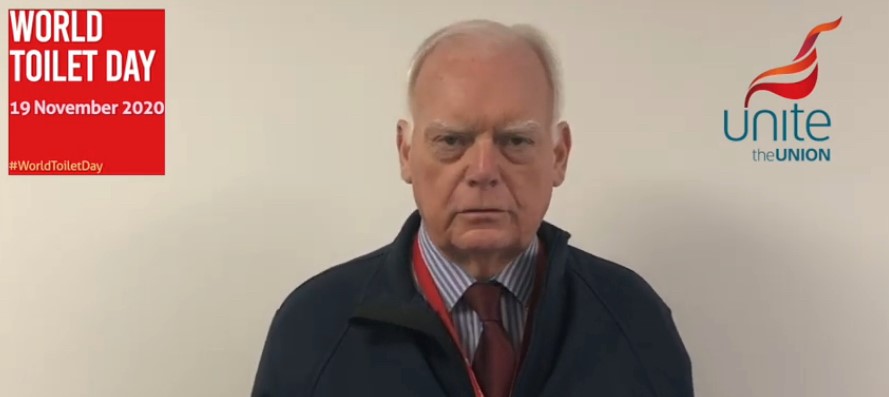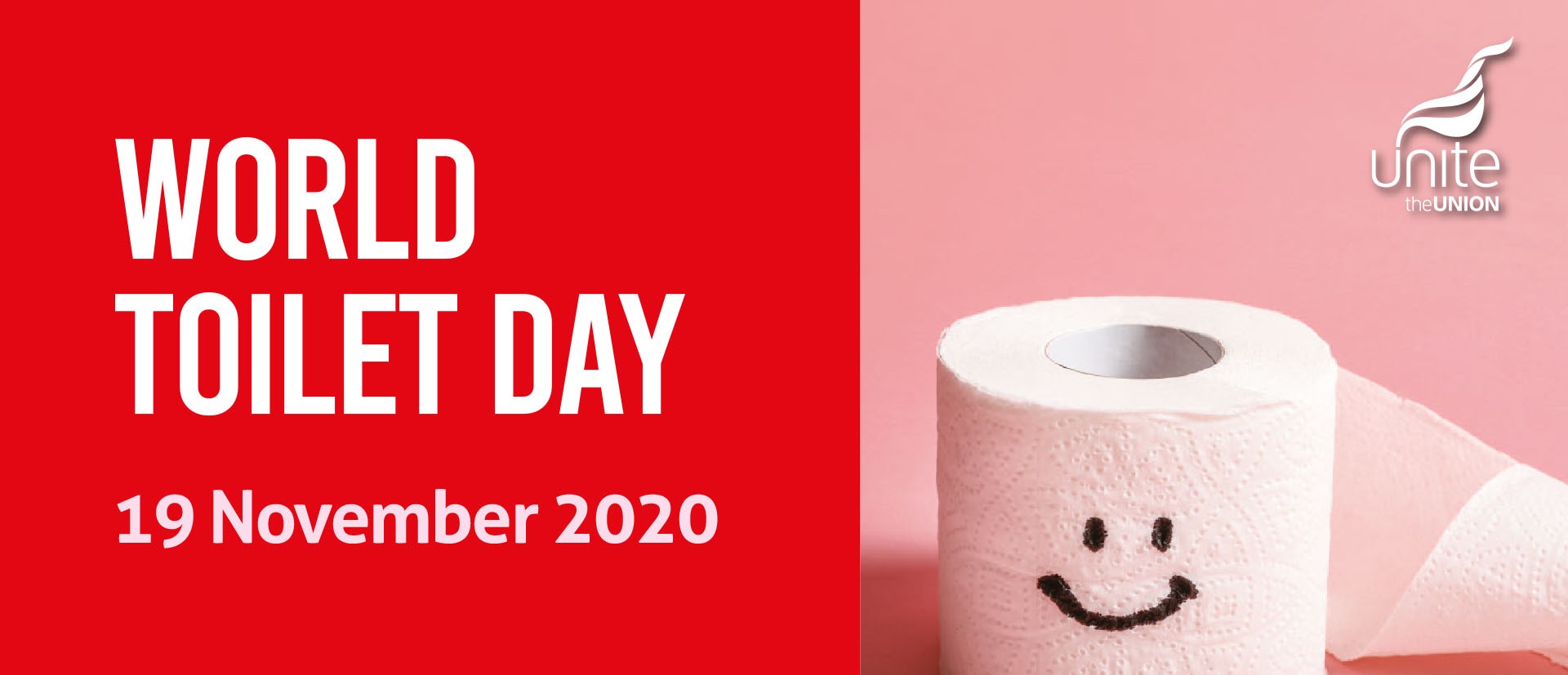Toilet dignity call
Most of us take having adequate toilet facilities for granted – when we really need to go, most of the time we can.
But for tens of thousands of workers in the UK, lack of access to decent toilets or unnecessary restrictions on toilet breaks is forcing people to hold on, which isn’t only a violation of people’s dignity but can come with serious health consequences as well.
Being forced to delay using the toilet can cause urinary tract infections, bladder and bowel damage and can also cause toxins to build up in the body.
Unite is highlighting the problems faced by workers today (November 19) on World Toilet Day. Although World Toilet Day is primarily used to highlight clean and adequate toilet access in the developing world, Unite believes that a spotlight needs to be shone on the struggles faced by many UK workers on a daily basis.
Forced to go in the bushes
Unite, which has long been fighting for toilet dignity for its members, has discovered that workers from a wide range of sectors are being denied adequate access, from staff in banking to bus driving to construction, lorry driving, warehousing, agriculture and more.
One fuel tank driver told Unite how, as part of his job, he must remain within sight of his vehicles at all times.
“Where I make deliveries there are no loos,” he said. “I’m forced to go in the bushes.”
Another bank worker who suffers from serious health issues explained that there is no toilet in the branch where she works.
“We were told to use one in a nearby shop, which I didn’t get to in time,” she said.
Another worker recounted how he was told that toilet breaks â€did not meet company efficiencies’ – and was then sent to occupational health.
“I was then told I’d have to take any toilet break out of my lunch time,” he said.
Women
A female construction worker highlighted the problems she faces as a woman in a male-dominated sector.
“I needed to go and found the women’s toilets on-site were locked,” she said. “I had to ask a male colleague for the key. When I got the key at last I found my loo was being used as a storage room.”
Another female driver explained how she was making a delivery to Gatwick Airport on a day when traffic was particularly slow. Already being forced to hold on because of the traffic, when she arrived she asked if she could use the facilities.
“I was told no as supposedly I was a security risk even though I am Level D trained in security, I hold a company I.D., drivers licence, CPC Card, and digital tachograph card, plus I had worked for this company for 17 years,” she explained. “I was shocked.”
The situation was all the more urgent for her because she had just started her menstrual cycle.
“I had blood running down my legs and I was so stressed I had no idea what to do,” she said.
Eventually, a woman from the company next door came to her aid and allowed her to use their facilities but the experience is still one that stays with her.
“This behaviour should not be allowed,” she said. “It is a human right to be able to use toilet facilities.”
Her story highlights the additional facilities access problems women face in work which Unite is now tackling through its period dignity campaign. The campaign was launched in September and is now being extended to sectors such as construction and passenger transport where there are additional challenges.
Construction survey
In January, Unite found that construction workers in particular are being denied toilet access after conducting a survey of more than 3,000 builders.
The survey found that on nearly one in five sites (17 per cent) men and women were forced to share toilet as there were no separate facilities for women workers.
In total 18 per cent of respondents’ workplaces did not have adequate toilet facilities. Ten per cent of sites did not supply toilet paper.
Despite construction invariably involving dirty, hot and physical work over half of respondents said that their workplace did not have any showers. Even when showers were provided in 16 per cent of cases there were no separate showers for women.
Where showers and toilets were provided there remain issues about their cleanliness. In 3 per cent of cases respondents said that showers and toilets were never cleaned while in 8 per cent of cases they were only cleaned weekly.
Campaign win
Last year, Unite won a long–running campaign for the right of delivery drivers to use an employer’s toilets while conducting deliveries. Employers in control of non-domestic premises are now obliged to allow people who are not their employees but use their premises to access toilets and washing facilities.
The change in the regulations ended the problem of drivers having to go to the toilet behind bushes, or have to continually â€hold on’ due to being denied access to toilet facilities.
Still, the fight for toilet dignity for all workers goes on and Unite is determined to win for its members.
Employers have a clear duty to provide decent toilets and washing facilities under regulations which came into force in 1992, with separate regulations applying to the construction industry. The Health and Safety Executive (HSE) administers these regulations and while it has the power to take legal action, this rarely occurs.
“It is simply disgraceful that in 2018 tens of thousands of UK workers are denied toilet dignity at work,” said Unite assistant general secretary Gail Cartmail.
“The examples that Unite has revealed are simply staggering and it is clearly deeply humiliating for the workers who are being denied toilet dignity.
“Employers have got absolutely no excuse for ensuring toilet dignity and if they fail to do so they should be prosecuted by the HSE,” she added.
“Unite will not be passive on this issue, if workers are denied toilet dignity we will name and shame the guilty parties.”
 Like
Like Follow
Follow


